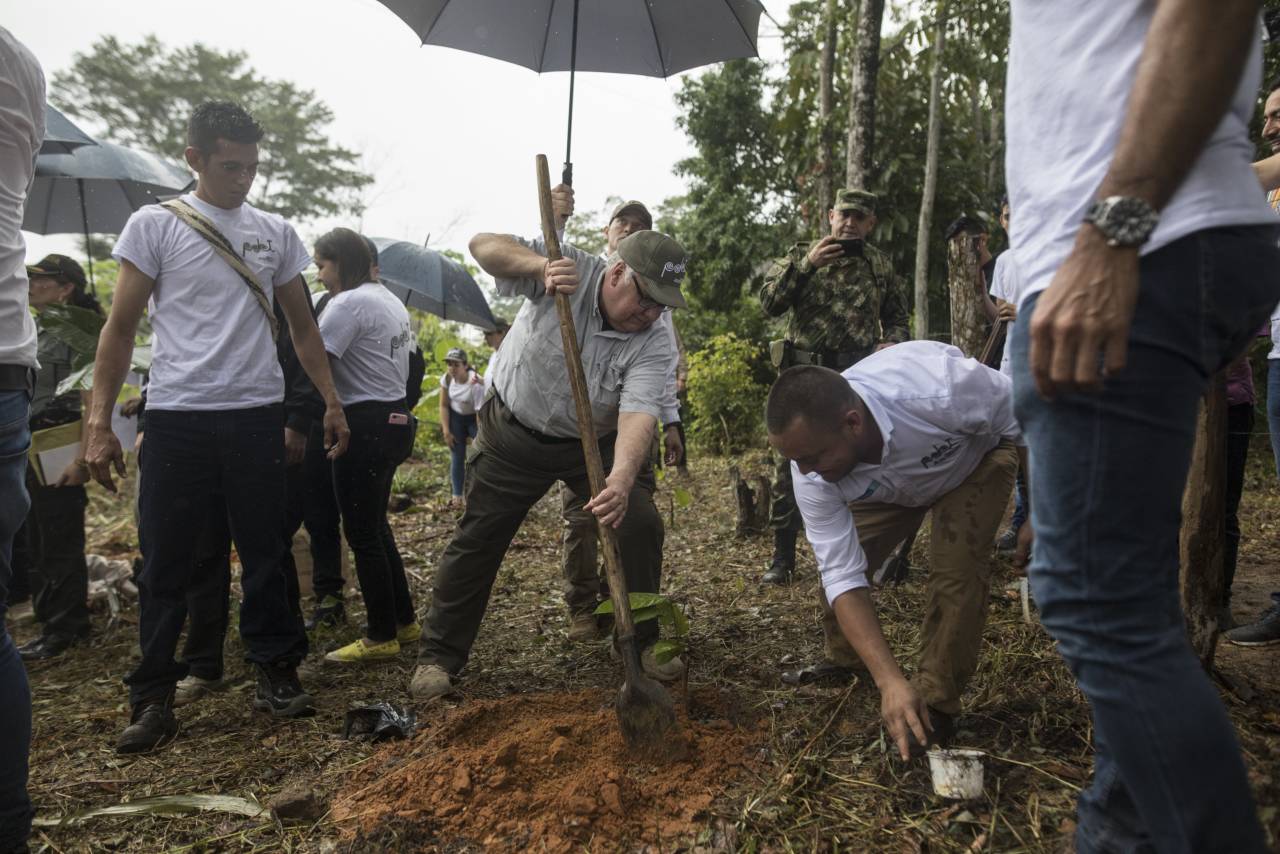Howard Buffett, son of renowned investor Warren Buffett, is taking a proactive stance against Colombia’s escalating cocaine trade. His initiatives aim to persuade local farmers to shift from illegal coca cultivation to sustainable legal crops. This effort is part of a broader strategy to combat drug trafficking while promoting agricultural development in the region.
Buffett’s organization, the Howard G. Buffett Foundation, is investing significantly in programs designed to provide support and resources to farmers currently involved in coca production. “We’re trying to chip away at it,” Buffett stated, emphasizing the importance of building trust with communities to facilitate these transitions. The foundation’s approach not only focuses on immediate economic benefits but also on long-term sustainability.
Addressing the Cocaine Trade’s Impact
In 2023, Colombia produced approximately 1,700 tons of cocaine, making it the largest producer of the drug globally. This situation has dire social implications, fueling violence and corruption. The Colombian government has recognized the need for alternative development strategies that can reduce reliance on illicit crops. Buffett’s programs align with these governmental efforts, aiming to offer farmers viable options.
The foundation has initiated training programs that educate farmers on how to cultivate crops such as coffee, cacao, and fruits. These crops not only provide better financial returns but also contribute to the local economy. By integrating these farming practices, Buffett hopes to diminish the allure of coca cultivation, which offers quick financial rewards but perpetuates a cycle of violence and instability.
Buffett acknowledges the challenges of changing deeply rooted agricultural practices. Many farmers see coca as their only means of survival, given the historical lack of support for alternative crops. The initiative includes financial incentives, technical assistance, and access to markets for legal crops, making the transition more feasible.
Collaborative Efforts for Lasting Change
To amplify the impact of his initiatives, Buffett collaborates with local non-governmental organizations and government agencies. This collaboration is crucial for ensuring that the programs are culturally sensitive and tailored to the needs of specific communities. By fostering partnerships, Buffett aims to create a network of support that extends beyond mere agricultural training.
Moreover, the challenge of transitioning away from coca production is compounded by the ongoing violence associated with drug trafficking. Farmers often face threats from armed groups that benefit from coca cultivation. Buffett’s initiatives not only address agricultural changes but also seek to enhance security and stability in farming regions, enabling communities to thrive without the shadow of drug cartels.
In addition to addressing the immediate economic concerns, Buffett’s efforts also focus on environmental sustainability. By promoting crops that require less land and water than coca, the programs aim to protect Colombia’s rich biodiversity. This dual focus on economic viability and environmental health is essential for creating a sustainable future for Colombia’s rural communities.
Through these comprehensive strategies, Howard Buffett is not only tackling the cocaine trade but also investing in the future of Colombia’s agricultural landscape. His commitment to fostering legal crop production presents a glimmer of hope within a region grappling with the complexities of drug trafficking. As these programs take root, the potential for transformation in Colombia’s rural farming communities may finally begin to unfold.
